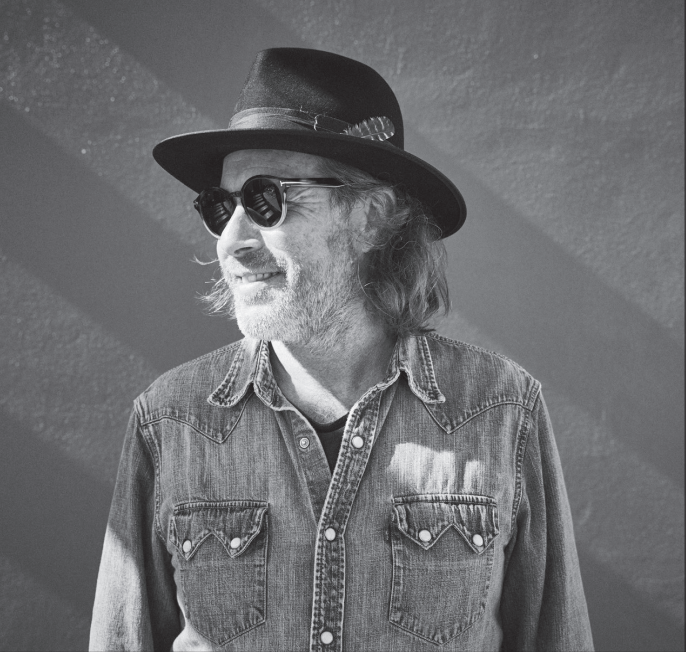Behind the Scene: Trey Allen

Trey Allen has traveled the world as the tour manager for some of the biggest live acts of the past quarter-century—from Widespread Panic, The Strokes and MGMT to Leon Bridges, The Decemberists and My Morning Jacket. But his diverse résumé extends far beyond the road. Along with photographer Danny Clinch, Allen created TourGigs, an online concert platform, and, most recently, he has ventured into the management world as a founding partner of the Sunday Supper Group.
“At the end of the day, there’s a line of a million people that want my gig, that are working very hard to make it,” he explains. “Whether I’m 25 years into doing something, or one year into doing something, it’s very, very important not to burn bridges.”
What was your first job in the music industry and what led you to that job?
My first job was looking after artists at Shoreline Amphitheatre [in Mountain View, Calif.]. I was basically doing hospitality and taking care of artists in their dressing rooms—things like that—and that actually led to cooking for bands. When you’re starting out in that world, you do anything and everything you can. It doesn’t matter what you have to do, you’re just like, “I’m there. I wanna do it.”
One night, I picked up a catering job at a Rod Stewart show assisting the kitchen. More or less, I was there to wash the dishes. I finished up the night and the chefs that were on the tour said, “We really dig your vibe—we had a great time working together. Would you be interested in coming out and joining us on the tour?” And I was like, “Sure, when do I need to be ready?” And they were like, “When the bus leaves, tonight.” So I went home, packed my bags and worked in the kitchen for Rod Stewart, Pink Floyd and some Rolling Stones tours.
You eventually turned your attention to tour managing. Can you talk about that transition?
Especially in the music industry, it’s all about connections. I had been a Widespread Panic fan, and I ended up interning at Capricorn Records in high school around the time the Widespread Panic record was released. That’s how I met those guys. I did that for a few months before I left for San Francisco. Just through my touring experiences, and through the H.O.R.D.E. festivals, we remained in touch with one another. [Allen served as H.O.R.D.E.’s front-of-house production manager from 1995-97.] One time, when I was in town for some Dead shows, I also reached out to the Widespread guys to see if I could help them promote a show in San Francisco.
We had met in an interning type situation, but I think the band noticed, “This kid’s into it.” So I came home from the H.O.R.D.E. festival tour and the Widespread guys were playing in Nashville. I walked into the show to say hey, and their tour manager was looking for someone to drive their gear around. That led into a merch position with the band. I did the merch thing for a couple of tours, then the call came in for me to tour manage them. I tour managed those guys for about 11 years.
What was an early lesson that you learned?
I was at a Nirvana show at the Cow Palace in San Francisco, and I was very stressed out and I was running to go do something—literally running. Someone stopped me and said, “When I was at the Fillmore one day—under Bill Graham— there was someone else who was in the situation that you’re in, and he stopped it. We don’t run here. Whatever it is that you’re doing, if you’re running, you’re showing a sign that you’re kind of losing the plot. You don’t need to run anywhere.”
How did you come to start your management company?
I started to practice Transcendental Meditation. And through the meditation, and through [my quest] to try and make the spiritual part of my life better, I found a lot of clarity. I live in a wonderful neighborhood in East Nashville where there is this wonderful music scene happening. I felt, “Now is the time for moving forward with this management thing.”
I would do these “Sunday supper” hangs at my house. I would have musicians, booking agents, attorneys, meditation teachers, masseuses and whoever come by. The point wasn’t to do business, but we’d always get there. People would say, “You should start managing bands. You have 20 years of experience on the road—you should do something with that!” And I was like, “I know, but I need a partner.”
I ended up finding a partner who was right down the street. Her name is Courtney Blankenship—she’s actually the wife of Tom Blankenship, the bass player in My Morning Jacket. We started a management company, and we basically took the name from our “Sunday supper” hangs—it’s called the Sunday Supper Group. Court brings this wonderful background in an area I’m missing, which is a history with labels, a history with tour marketing and a history with managing. It’s the perfect yin-and-yang situation.
What have you learned from your management company that’s helped you on the road and vice versa?
I don’t have any intentions of leaving the road right now— I’m still tour managing the My Morning Jacket guys, and still working with Leon Bridges. I’m going out and doing a month with The Decemberists soon. It’s really wonderful what the road part can do for the management part because, like I said, at the end of the day, it’s all about contacts. I had an amazing run with Leon where I met the head of Starbucks Music—I was sitting there in Tokyo, listening with their marketing people to Ruby [Amanfu]. So one area really helps the other.



















